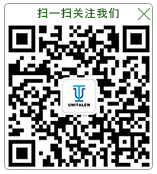Revised "Anti-Unfair Competition Law" Enters into Force on Jan 1, 2018
March 17, 2018On November 4, 2017, the revision to the Anti-Unfair Competition Law of People’s Republic of China (“AUCL”), which came into effect on December 1, 1993, was passed at the 30th meeting of the 12th NPC Standing Committee, and came into force on January 1, 2018.
The newly revised AUCL focuses on regulating unfair competition in the Internet, in particular against false propaganda such as fraudulent transactions and exploitation of reviews in the field of electronic commerce. The revised AUCL clearly stipulates that operators should not make any false or misleading commercial propaganda about the "sales status" or "user rating" of their products, nor can any operators conduct false or misleading commercial propaganda through such means as fraudulent transactions, otherwise they will face a fine of up to 2 million yuan.
Commercial bribery to seek trading opportunities or competitive advantage, is also one of the acts the new AUCL aims to regulate. The amendment further clarifies the targets of commercial bribery, including the employees of counterparty and the entities and individuals entrusted by the counterparties of the transaction, the organizations and individuals that use their power and influence to influence the transaction. It also stipulates that if an employee of a business operator bribes somebody, it shall be regarded as bribing conducted by the business operator as well, unless he/she can prove that the employee’s act of bribing has nothing to do with the business conduct.
The revised AUCL also defines unfair competition conducts in the Internet field such as "malicious implementation of incompatibilities with other network products or services".
For more information of IP related articles in the revised AUCL, please visit the following link:




